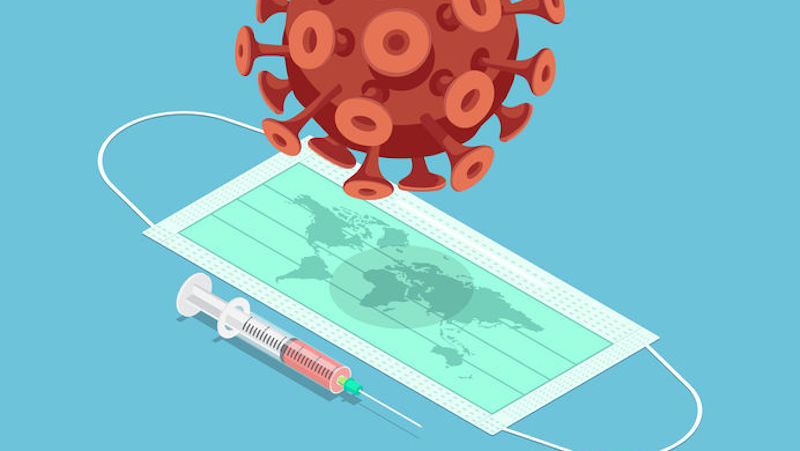New Red Cross and Red Crescent plan to counter inequities in pandemic response
March 2021: The International Red Cross and Red Crescent Movement has today launched a new plan that aims to tackle “deep and pervasive” inequities in the global response to the Covid-19 pandemic.

While no one has been spared from the effects of Covid-19, the consequences of this pandemic have not been equally felt around the world. The crisis has been defined by profound and persistent inequities both in terms of who is most at risk and how the world has responded. Image: Ojogabonitoo/123rf
The new Red Cross and Red Crescent analysis released on March 24 shows that, although present in all countries, these inequities have been particularly pronounced and damaging for people living in countries affected by humanitarian crises.
The report found that countries that are not dealing with humanitarian crises have reported carrying out nearly 48 times more Covid-19 tests per capita than countries that are facing humanitarian crises classed as severe or very severe. In addition, people who live in countries facing either no humanitarian crisis, or crises that are considered to be low in severity, are more than three times as likely to be supported with contact tracing for Covid-19.
In terms of Covid-19 vaccines, less than two per cent of global doses have reportedly been administered in the 32 countries currently facing severe or very severe humanitarian crises.
Commenting on the discriminatory nature of the virus, Jagan Chapagain, Secretary General of the International Federation of Red Cross and Red Crescent Societies (IFRC), says: “Since the start of the outbreak, we have seen the virus discriminate through its impacts on the elderly, on people with pre-existing conditions, and on people who do not have the economic resources to isolate and protect themselves. What our data shows is that the response to Covid-19 also discriminates. These deep and pervasive inequities mean that, no matter where they are, people in vulnerable settings are more likely than the general population to be infected, are more likely to die once infected, and are least likely to be appropriately supported through the response, including through vaccination campaigns. The same is also true for vulnerable groups in non-crisis settings.”
Robert Mardini, Director-General of the International Committee of the Red Cross (ICRC), says that the communities affected by armed conflict are among the worst hit by the pandemic, as so many people have been displaced, separated from their families or deprived of their livelihood. “That is why the ICRC is supporting National Societies, vital health infrastructure, access to health care, efforts to prevent the spread of disease in places of detention, access to clean water, and the safe and dignified management of human remains in places experiencing conflict and violence,” he says.
The revised International Red Cross and Red Crescent Movement plan is designed to counter some of the more severe inequities by expanding care, treatment and support for people in all countries, including those affected by humanitarian crises such as conflict and disasters. The plan also includes a range of measures designed to support and extend Covid-19 immunisation campaigns so that marginalised and isolated groups – including people living in conflict zones, migrants and displaced people, people living in urban slums, and isolated communities in non-crisis affected countries – can access vaccines.
IFRC’s Chapagain concludes: “In many contexts, the people who are most likely to be infected and to die of the virus are also the least likely to be counted, leading to a distorted understanding of where the risks and impacts are greatest. The Red Cross Red Crescent Movement plan focuses on reaching the last mile and ensuring that no one is left behind.”